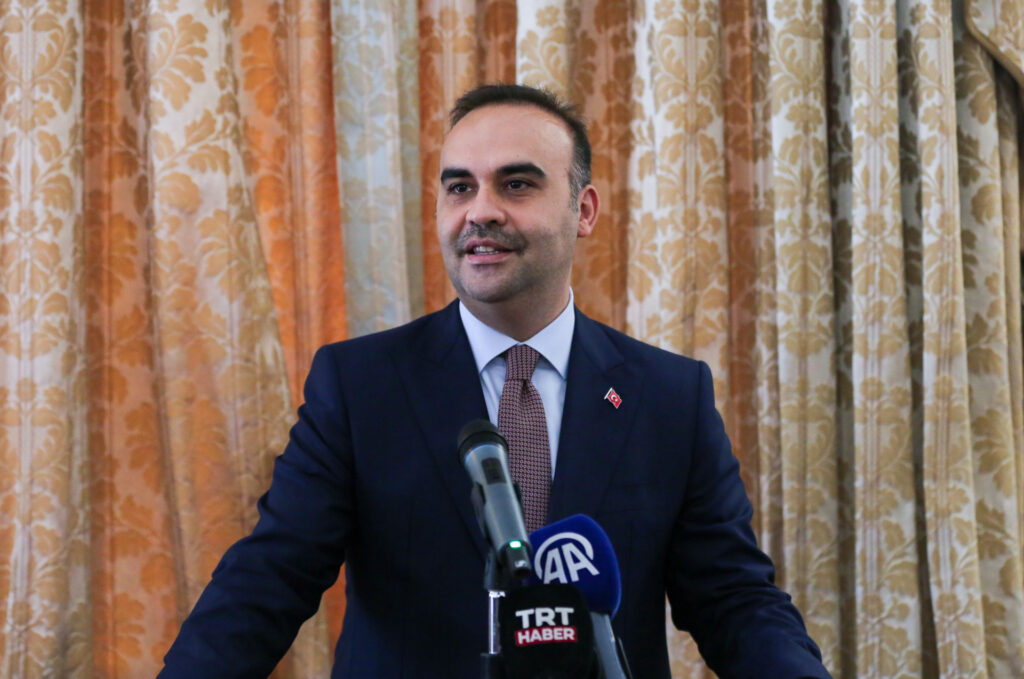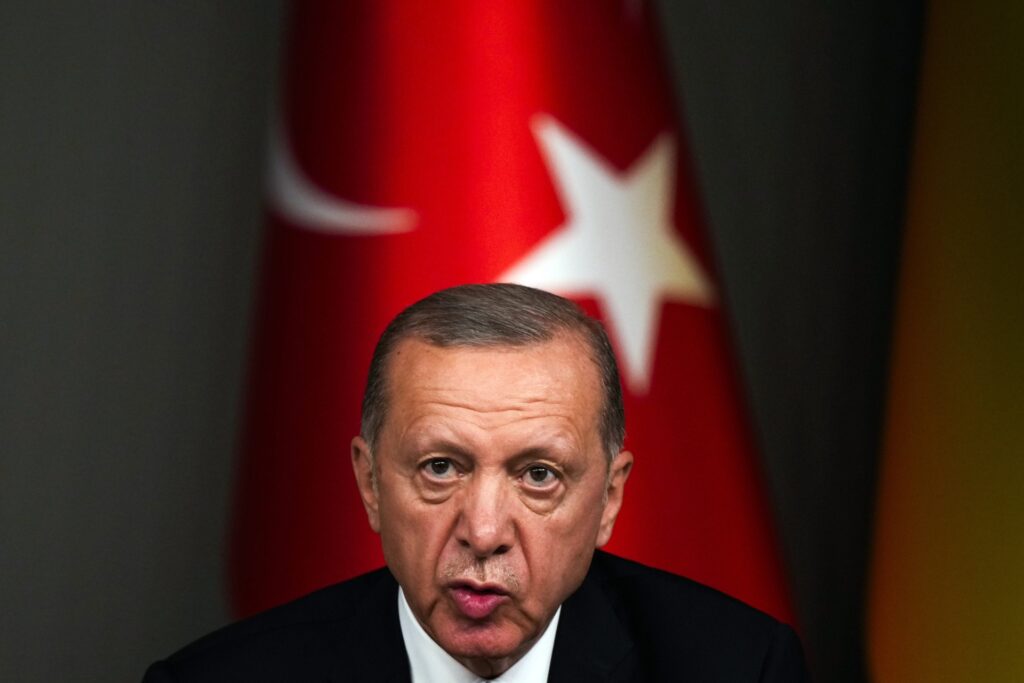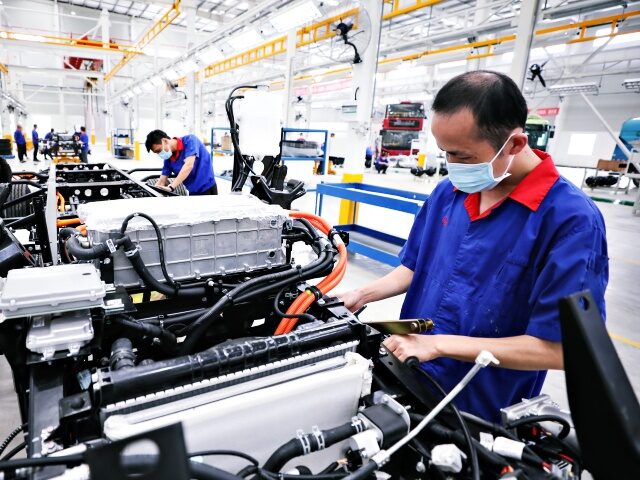Turkish Interior Minister Fatih Kacir said on Friday that his government has entered “advanced negotiations” with Chinese electric vehicle (EV) giants BYD and Chery to establish factories in Turkey. Kacir touted such factories as a means for the Chinese companies to increase sales in Europe.
“We would like to complete the talks as soon as possible. We have come a long way with both of them,” Kacir said in an interview with Bloomberg News. He added that two other Chinese auto companies, SAIC Motor Corp. and Great Wall Motor Co., are also negotiating for factories in Turkey.
Kacir sweetened the pot by saying that if Chinese firms build EV plants in Turkey, they will gain “privileged opportunities for battery investments, as well.”

Turkish Minister of Industry and Technology Mehmet Fatih Kacir (Muhammed Yaylali/Anadolu via Getty Images)
Bloomberg noted that BYD is building an EV factory in Hungary and has expressed a desire to establish another one somewhere in Europe. A plant in Turkey could help the Chinese company avoid European tariff hikes, which could be imposed if a European Union (EU) probe concludes China’s heavy government subsidies to automakers constitute unfair competition.
Turkey would benefit greatly from Chinese EV investments, as it has experienced difficulty attracting foreign investment ever since invading Syria to fight Kurdish forces in 2019.
On the other hand, Turkey has its own domestic EV company, Turkey Otomobil Girisim Grubu (TOGG). TOGG is a pet project of authoritarian President Recep Tayyip Erdogan, who became the first official owner of a TOGG electric vehicle (actually, two of them) in April 2023. Erdogan hailed the delivery of his indigenously-produced EVs as the “realization of the 60-year dream of our nation.”

Turkey’s President Recep Tayyip Erdogan (AP Photo/Francisco Seco, File)
TOGG cars have been selling fairly well through pre-orders in Turkey — they only became available for delivery to consumers in May — and the company has ambitions to expand sales into Europe. Those ambitions could be significantly imperiled if massive Chinese firms like BYD, which has occasionally topped Tesla as the largest EV manufacturer in the world, push into the Turkish market and use it as a gateway to Europe.
Most observers doubt the potential EU tariff hikes on Chinese EVs would be anywhere near as high as the tariffs the United States announced on Tuesday, especially with German automakers terrified that China could retaliate against high European tariffs by closing its own vast market. Germany fears angering Beijing so much that it opposes even investigating China for dumping subsidized products into European markets, let alone taking action against unfair Chinese trade practices.
Hungary has looked like China’s most likely beachhead to pierce tariff walls and keep its cars flowing into Europe, much as China will probably use Mexico to evade U.S. import restrictions. Turkey has some advantages as an alternative, including Turkey’s current 40-percent tariff on Chinese EVs, which would presumably be bypassed if China begins manufacturing the cars in Turkey.

The construction site of the China Contemporary Amperex Technology Co. (CATL) electric vehicle (EV) battery plant in Debrecen, Hungary, on August 16, 2023. (Akos Stiller/Bloomberg via Getty Images)
Kacir’s enthusiastic comments about advanced negotiations with China are a surprising turnaround from November, when Turkey raised those EV tariffs and imposed various other restrictions on imports, such as heavy requirements for foreign automakers to maintain service centers in Turkey for their vehicles.
In the time between Erdogan taking ceremonial delivery of the first TOGG EVs and regular customers sliding behind the wheel for the first time, BYD nearly doubled its sales in Turkey. Turkey’s determination to protect Erdogan’s beloved TOGG project from Chinese competition appeared to wane in January when Kacir visited China for a tour of its EV and battery factories.
Kacir bubbled with praise for China’s “innovative technologies,” which he said Turkey was eager to study, suggesting the Erdogan government might be having more trouble with TOGG production than anticipated and was losing its confidence that Turkey’s EVs could compete with the titanic state-subsidized Chinese automakers.
Cranking out batteries for Chinese electric vehicles might be the consolation prize Turkey accepts for sacrificing its little homegrown auto company to secure big factory investments from the likes of BYD and Chery, plus better relations with the Chinese Communist tyranny, which does not like criticism of its trade practices and takes a very dim view of other countries using tariffs to protect domestic markets.

COMMENTS
Please let us know if you're having issues with commenting.